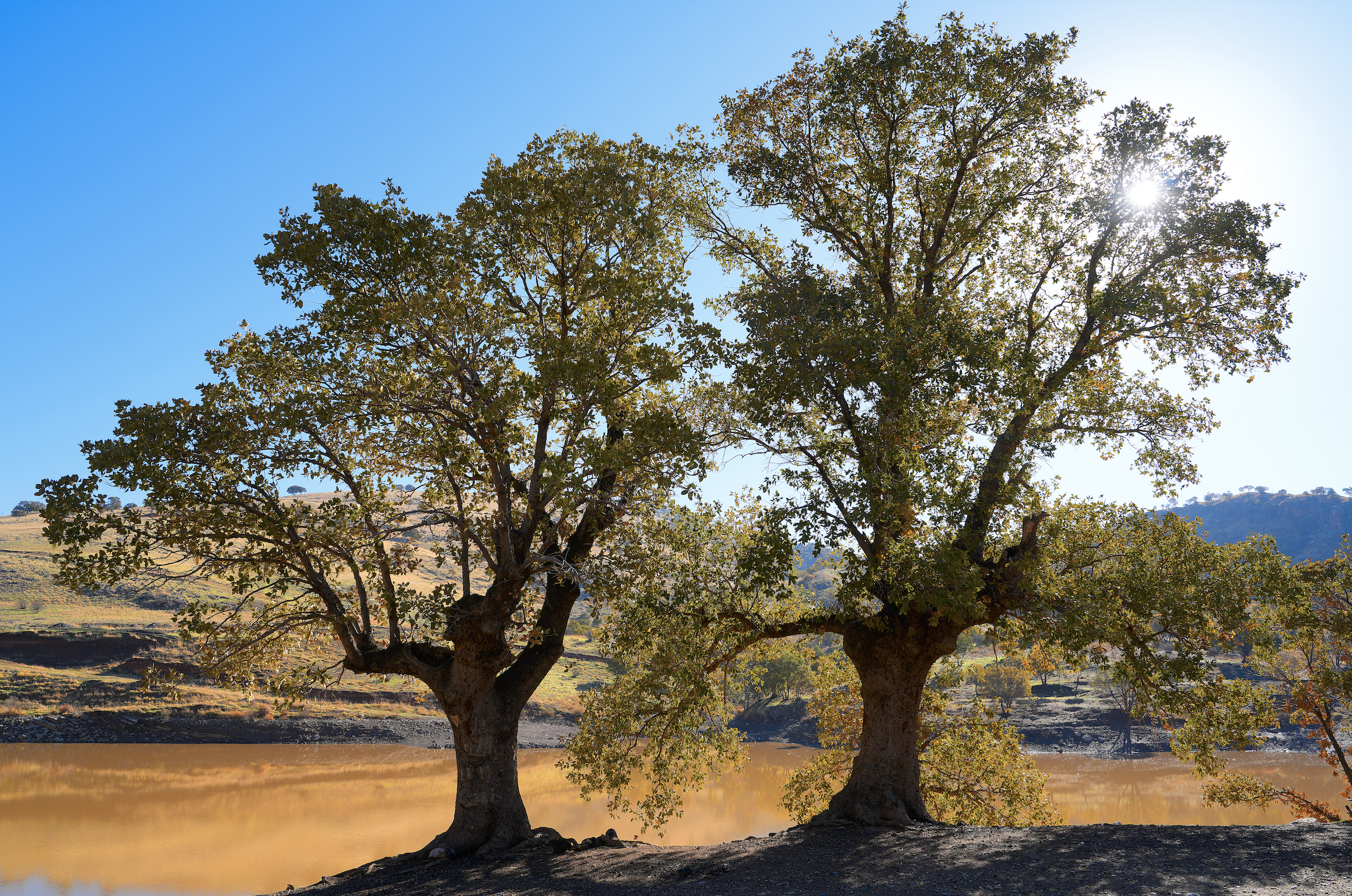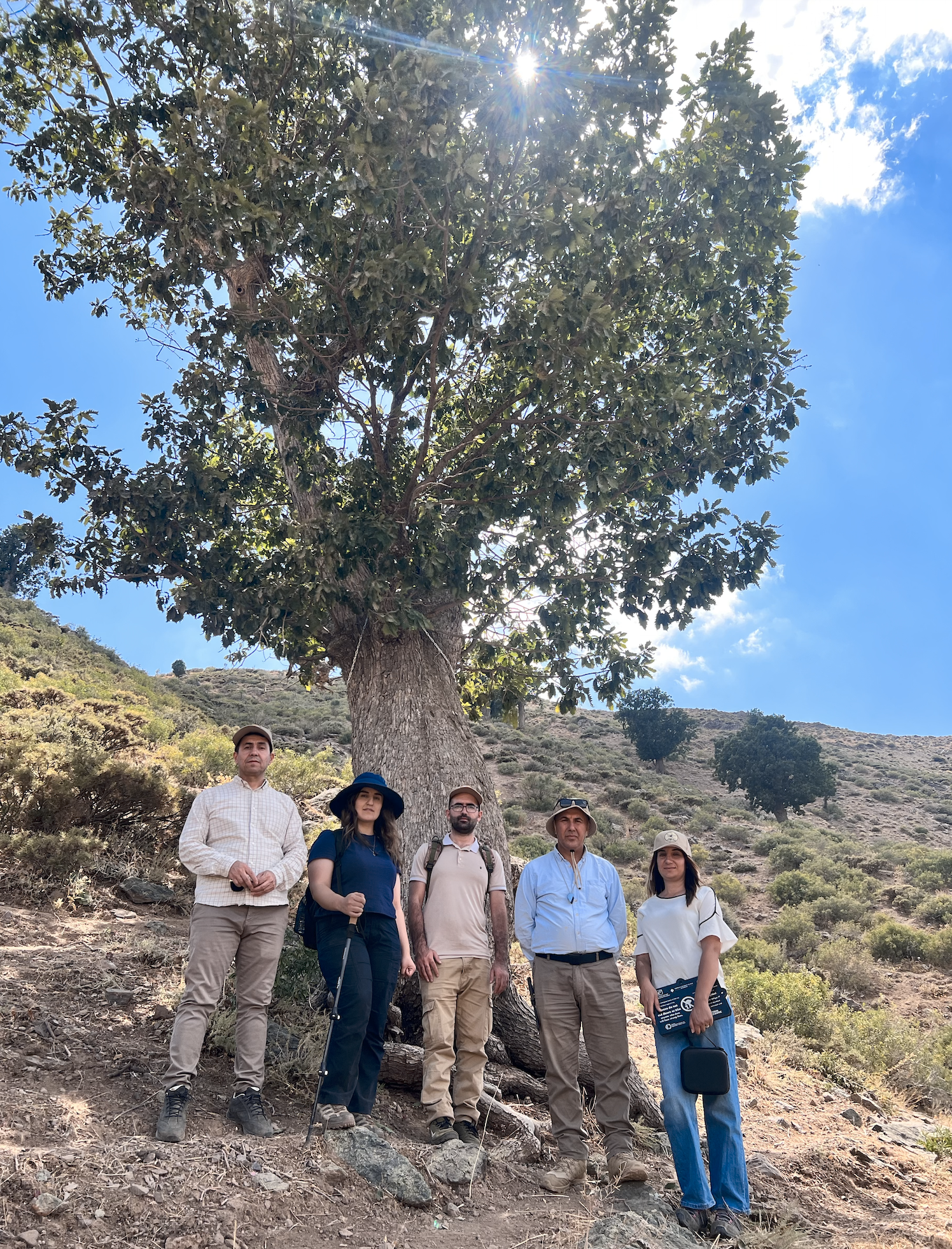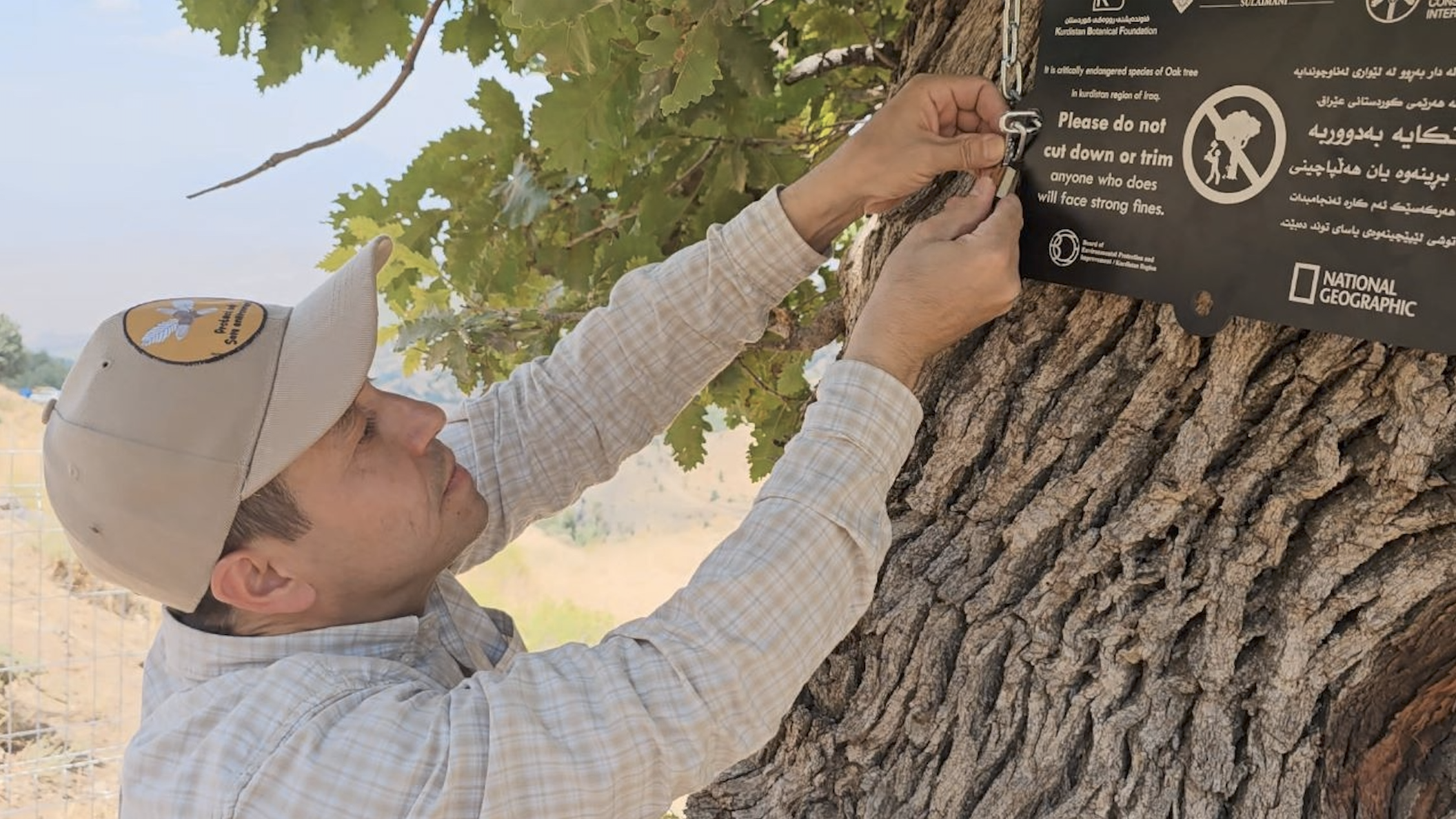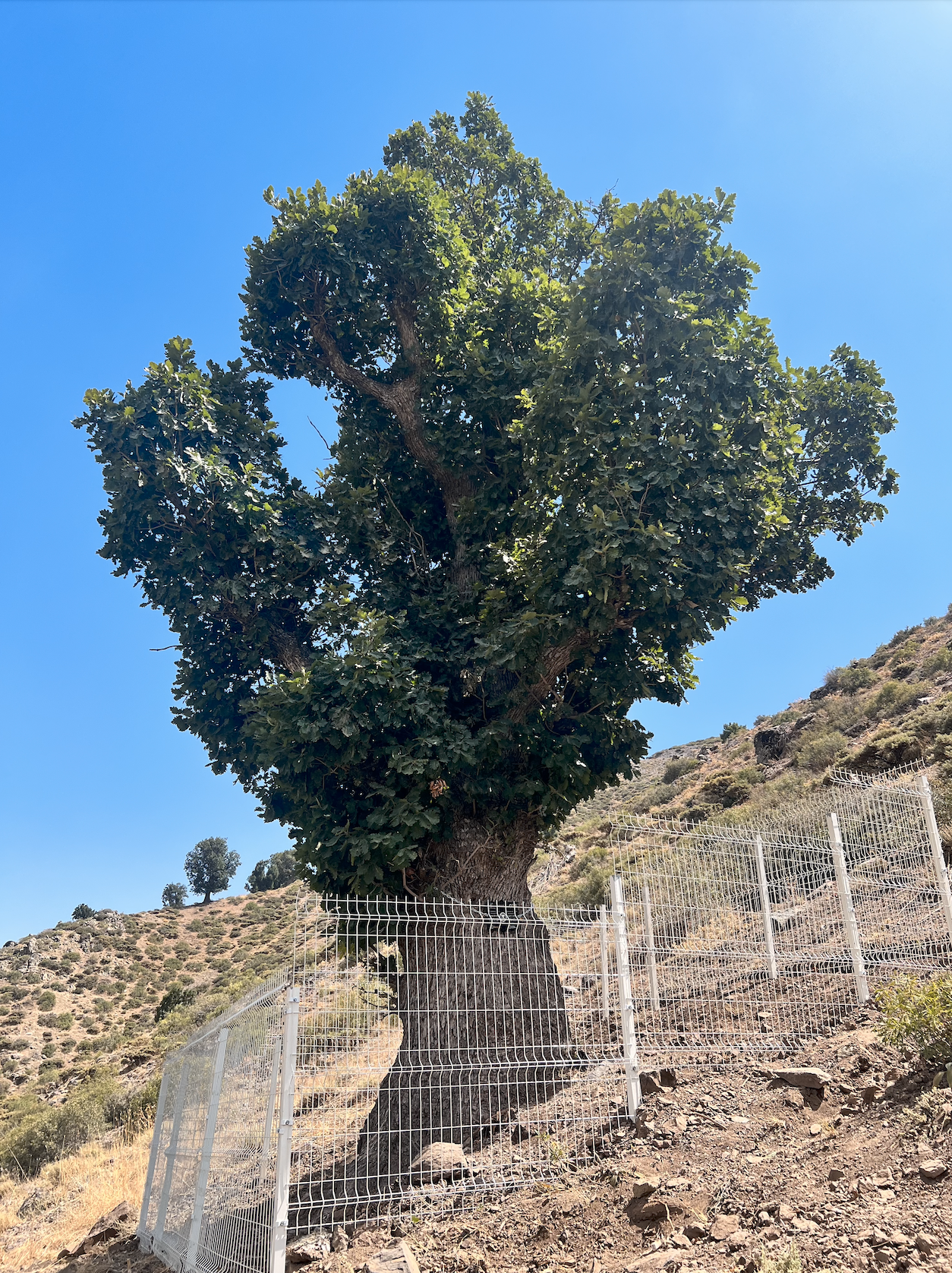Within the context of addressing the issue of climate change, all proposed solutions are invariably aimed at establishing a mechanism for the sequestration and absorption of potent greenhouse gases, including but not limited to CO2 and methane. Notably, afforestation and the preservation of existing forested areas are recognized as pivotal strategies that ameliorate the accumulation of these heat-trapping gases in the atmosphere.
Among the myriad trees that inhabit our planet, oak trees hold a position of particular significance due to their widespread presence, comprising a diverse array of approximately 450 distinct species. Notably, within the geographical confines of the Kurdistan Region of Iraq (KRI), a distinct subset of five types of oak trees has been officially acknowledged.

Biodiversity and adaptability
Oak trees are recognized for their soil conservation properties, as a mature oak has the capacity to absorb approximately 21 kilograms of CO2 annually. Moreover, the efficacy of CO2 absorption by these trees tends to increase as they advance in age. Oak trees have a preeminent role in the ecosystems of the KRI’s forests and the expansive Zagros Mountain range. Indeed, the presence and longevity of oaks within these ecosystems are pivotal, as they significantly influence the viability of all plant species and fauna inhabiting forested areas. Consequently, the presence of oak trees is of paramount importance in preserving biodiversity within these forests.
The robust capacity of oak tree roots to efficiently extract moisture from the soil renders them instrumental in safeguarding soil moisture, thus significantly contributing to the preservation of food security and agricultural sustainability. Notably, the data furnished by the Kurdistan Regional Government Board of Environmental Protection and Improvement reveals the prevalence of oak trees within the region’s forests, accounting for up to 93% of the total forested area in the KRI. This data underscores the critical importance of both forest preservation and the deliberate establishment of artificial forests as indispensable measures to maintain and enhance the ecological integrity and agricultural stability of the region.
Notwithstanding the inherently slow growth rate characteristic of oak trees, their prevalence as the native tree species within the environmental context of the KRI equips them with a remarkable adaptability to a diverse range of climatic conditions. This adaptability is underscored by their capacity to thrive and proliferate at varying elevations, particularly within the altitude range of 400 to 2,000 meters above sea level, thus contributing to their widespread presence and growth within the region.

Cataloguing and planting oaks
Dr. Saman Abdulrahman, Director of the Kurdistan Botanical Foundation (KBF), has emphasized that the process of surveying and data collection represents a scientifically advanced endeavor aimed at addressing the challenges posed by climate change. Reflecting upon the inception of the KBF in 2013 and its concerted efforts to survey the entirety of the region’s landscape and mountainous terrain, Dr. Abdulrahman articulated his longstanding aspiration that such comprehensive surveying activities would be integrated into official governmental initiatives. Observing the diligent and concentrated efforts of the Ninth Cabinet towards this crucial matter, he is now confident that the foundation has been laid for a significant scientific undertaking in Sulaymaniyah.
Dr. Abdulrahman’s expertise spans over two decades of dedicated research on the KRI’s plant life, which has been conducted in close collaboration with a multidisciplinary scientific team within the institute, encompassing a spectrum of specialized fields. To date, the institute’s collective endeavors have resulted in the comprehensive surveying of the region’s notable mountain ranges, including Qaradagh, Hawraman, Ezmar, Goizha, Halgurd, and Sakran, further underscoring the institute’s invaluable contributions to the scientific understanding and conservation of regional flora.

The Recovering the Wild initiative, which aims to preserve the oak forests within the KRI, assumes a position of utmost significance and strategic importance. This endeavor is conducted under the auspices of the Kurdistan Botanical Foundation, in conjunction with collaborative efforts involving the American University of Iraq in Sulaymaniyah and the Botanic Gardens Conservation International. Importantly, the project has received financial support from the esteemed National Geographic Society.
Considerable efforts have been dedicated to the comprehensive survey and preservation of oak tree forests within the KRI through a project that encompasses the meticulous identification of oak tree species, their collection, and the implementation of measures to augment their population. Additionally, a discerning examination of the various factors that pose threats to the continued existence of these oak forests has been undertaken.

Under the guidance of Dr. Nariman Ahmed, the project was launched in spring 2021 and is projected to conclude in autumn 2023. Notably, within the framework of this project, a precise taxonomy has revealed the existence of five distinct oak tree species, including Quercus aegilops, Quercus libani, Quercus infectoria, Quercus macranthera, and mix between infectoria and macranthera. Each of these oak tree varieties exhibits unique growth characteristics and features. Notably, macranthera, or the Caucasian Oak – locally referred to as shaadar or “the king tree” – has been identified as a species facing the threat of extinction. Regrettably, only a limited number of these trees remain, confined to the Hassan Bag Mountain in the Soran District.
Fortunately, this species of oak tree, distinguished by its exceptional aesthetic appeal and can reach a height of up to 20 meters, has garnered popular acclaim. In a concerted effort to bolster their population, protective enclosures have been erected around these endangered specimens, and distinctive markers were affixed to them as of September 2023, with the aim of gathering their progeny for the purpose of extensive planting in the forthcoming year.
Delband Rawanduzi is an activist and environmental journalist in the Kurdistan Region She achieved the 2021 Guan Eden Grant Program award for safeguarding villages and restoring forests.

